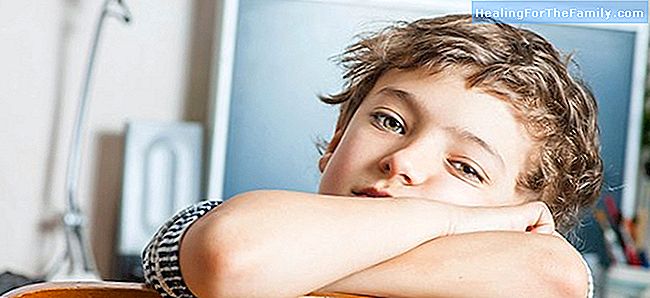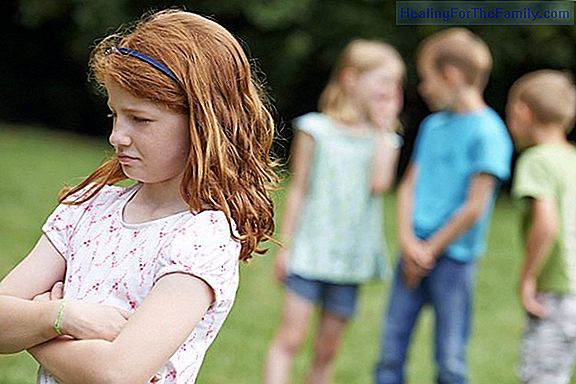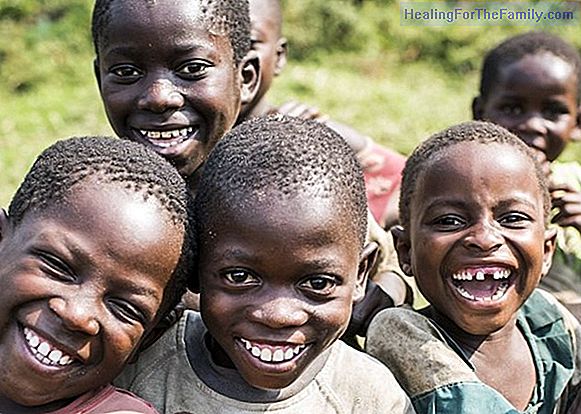How to prevent childhood depression
Depression not only affects adults, children also suffer from it . It is not the same, however, a child who feels sad, a depressed child. There are symptoms that indicate a depression in children such as anxiety, sudden mood swings or constant tantrums and for no apparent reason. It is the psycholog
Depression not only affects adults, children also suffer from it. It is not the same, however, a child who feels sad, a depressed child. There are symptoms that indicate a depression in children such as anxiety, sudden mood swings or constant tantrums and for no apparent reason. It is the psychologist who has to treat a depressed child, but parents can help prevent this disorder.
Psychologist Silvia Álava, explains how to prevent childhood depression, how it is cured and what consequences can be given to a child who has not been treated by a psychologist.
Prevention of depression in children

1. Can child depression be prevented?
Childhood depression can be prevented. Above all we have to know what kind of behavior, or what kind of attitudes can have the parents to get their children are healthy, happy children. What things can we do? For example, do not overprotect children. That is one thing that does not help us at all. When we do not leave the child in freedom, so that it develops, so that it acquires its basic behaviors, so that it is autonomous, that real child that we are doing it a disservice because we do not get it to be autonomous or feel safe in case same.
Parents are the model to follow, then they have to be a model of security, of trust. They have to be firm and safe. There are many parents who are very hesitant and make them see the child, that in the end the child is winning, that the child has more strength than the adult.
It will also be very important for children to win things. When a child has everything and has everything 'free', that is, it has not cost him an effort to earn it, they do not value it. On the other hand, when a child has cost a little effort, they will value it more. Do not allow everything because children will need rules, limits. That gives them security, gives them confidence.
A fundamental thing. You have to teach them from very young to tolerate frustration. And the frustration begins to tolerate from very small. When a child as young as two years old wants a candy and gets a terrible tantrum because he does not have candy, it is important that he learns to tolerate frustration.
2. What consequences can an untreated child depression generate?
Consequences that an untreated child depression can generate. When we do not treat the problem it can become chronic and we can find that they are children who have a generalized apathy, a demotivation towards the study, towards the rest of tasks, it can lead to a school failure, behavioral difficulties, bad coexistence at home, bad relationship with the same. It will also depend a lot on each child and each family.
3. Does childhood depression have a cure? Once a child has childhood depression, will he always have it?
Childhood depression has a cure just like depression in adults. In fact many times what we find is that both children and adults who have gone through a rut in the end generate a series of strategies and a series of techniques that will ultimately help them not only to overcome that depression or overcome that emotional blip but can help them in the future because they already have these techniques and strategies. Of course it has a cure and of course you can improve a lot.
4. Is depression different in boys than girls?
I have not found a study that says there are more boys than girls. We also have to remember that when children are small, the prevalence is very small, we were talking about 1 to 3%. On the other hand, as soon as we approach puberty and adolescence. We found that the prevalence is higher in girls or in girls than boys. Which is a similar thing to what happens to us in adulthood. In adulthood, the prevalence of depression is also higher in women than in men.
5. What profile of children are most prone to depression?
First we have to know that each child is unique and that we must study the case in particular. But if children educated in an environment of overprotection lack of rules, limits, where they give it all done, where they have not acquired the importance of effort, are children who have a hard time tolerating frustration, are children more likely to have Emotional problems.
6. When is it said that a child is depressed and when it is said that a child is just sad?
It is very important to make a correct diagnosis. It is not the same thing that a child is depressed when a child is sad. Be very careful with labels. For a child to say that he is depressed, the following factors must be given; he has to be almost all day sad, he has to stop doing activities that he likes, he must have lost his appetite, we have to find that he has trouble sleeping, he is tired, he has trouble concentrating, and this starts to interfere in the school, begins to interfere in their relationships with family members, begins to interfere in their relationships with their friends. You have to give all this and also have to give for a prolonged period of time.












